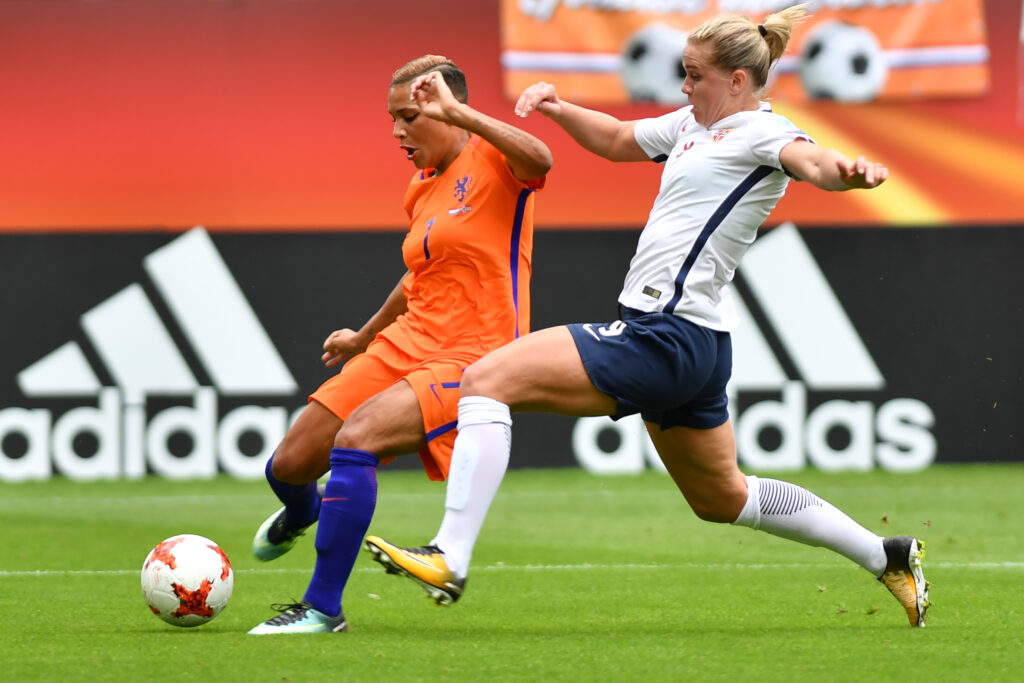As the 2024 FIFA U-20 Women’s World Cup approaches, excitement is building for soccer fans around the globe. This prestigious tournament, held in Costa Rica from August 10 to September 8, 2024, will showcase the talents of young female soccer players from various nations. Among them are several standout student-athletes from NCAA programs in the United States. These players represent a significant intersection of collegiate and international soccer, highlighting the growing prominence of NCAA athletes on the world stage.

NCAA Athletes Shine on the Global Stage
The NCAA, known for its competitive collegiate athletics, has produced many talented soccer players who have gone on to achieve success both domestically and internationally. The 2024 FIFA U-20 Women’s World Cup will feature numerous NCAA student-athletes, demonstrating the league’s role as a breeding ground for future soccer stars. Here’s a closer look at some of these remarkable players and their journey to the World Cup.
Top NCAA Players to Watch
- Emma Johnson (University of North Carolina) Emma Johnson, a dynamic midfielder from the University of North Carolina, is making waves with her impressive performances in collegiate soccer. Known for her agility, vision, and playmaking ability, Johnson has been a key player for her team and a standout in the NCAA Women’s Soccer Championship. Her skills and experience will be crucial for the U.S. U-20 team as they aim for success in the tournament.
- Sophia Martinez (Stanford University) Sophia Martinez, a talented forward from Stanford University, is another NCAA player to keep an eye on. Martinez has been a prolific scorer for Stanford, showcasing her finishing ability and speed. Her knack for finding the back of the net will be an asset to her national team as they compete against some of the world’s best young players.
- Ava Thompson (University of Florida) Ava Thompson, a versatile defender from the University of Florida, brings strength and leadership to the U.S. U-20 squad. Thompson’s defensive prowess and ability to read the game have made her a standout in collegiate play. Her contributions will be vital in helping her team secure a strong defensive foundation throughout the tournament.
- Isabella Lee (University of Virginia) Isabella Lee, a talented goalkeeper from the University of Virginia, is known for her quick reflexes and shot-stopping abilities. Lee’s performances in the NCAA have earned her a spot on the U.S. U-20 roster, where she will play a crucial role in safeguarding the goal and ensuring her team’s success on the international stage.
The Impact of NCAA Soccer on Global Competitions
The presence of NCAA student-athletes at the FIFA U-20 Women’s World Cup highlights the growing influence of American collegiate soccer on the global stage. NCAA programs are renowned for their rigorous training, competitive matches, and development opportunities, which contribute to the growth of soccer talent in the U.S. Many of these athletes use their collegiate experience as a springboard to international competitions, showcasing their skills and gaining valuable experience.
How NCAA Training Prepares Athletes for International Success
NCAA soccer programs offer a comprehensive training regimen that helps athletes develop their technical, tactical, and physical skills. Players benefit from high-level coaching, competitive matches, and exposure to various playing styles. This training not only prepares them for collegiate success but also equips them with the tools needed to excel on the international stage.
- Technical Skills Development NCAA programs emphasize the development of technical skills, including ball control, passing, and shooting. Players receive individualized coaching to refine their techniques and enhance their performance on the field.
- Tactical Awareness Understanding game tactics and strategies is crucial for success in international competitions. NCAA coaches focus on developing players’ tactical awareness, including positioning, decision-making, and game management.
- Physical Conditioning Physical conditioning is a key component of NCAA soccer training. Players undergo rigorous strength and conditioning programs to improve their endurance, speed, and agility, which are essential for competing at the highest levels.
- Mental Preparation The mental aspect of the game is equally important. NCAA programs provide athletes with psychological support and strategies to handle pressure, build confidence, and maintain focus during critical moments.
The Significance of the 2024 FIFA U-20 Women’s World Cup
The FIFA U-20 Women’s World Cup is a prestigious tournament that showcases the best young female soccer players from around the world. It serves as a platform for emerging talent to demonstrate their skills and gain international recognition. For many players, it is an opportunity to shine on a global stage and potentially secure professional contracts or further opportunities in their soccer careers.
Conclusion
As the 2024 FIFA U-20 Women’s World Cup kicks off in Costa Rica, the inclusion of NCAA student-athletes highlights the growing impact of American collegiate soccer on the global stage. Players like Emma Johnson, Sophia Martinez, Ava Thompson, and Isabella Lee represent the best of NCAA talent and will be competing against the world’s top young players. Their participation in this prestigious tournament underscores the significant role that NCAA soccer plays in developing future stars and contributing to the global soccer landscape.
With their skills honed through rigorous training and competitive play, these NCAA athletes are poised to make a strong impression at the U-20 World Cup. Soccer fans and enthusiasts worldwide will be watching closely as these young talents take to the field, showcasing the excellence of American collegiate soccer on the international stage.